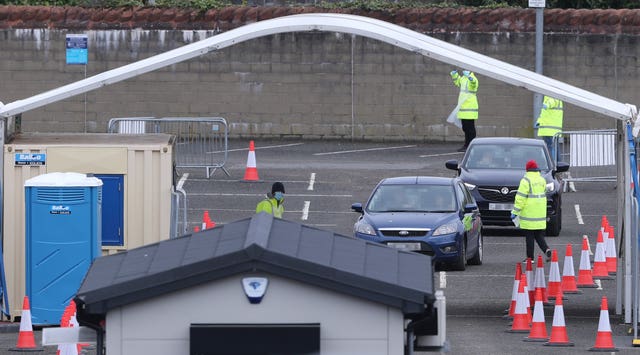Thoughts are turning to how the UK will end its period of lockdown and start the transition back to normal life.
– What is the UK’s exit strategy?
No precise exit strategy has yet been formed, though Professor Neil Ferguson, from Imperial College, who is advising the government, said experts are looking at it in detail this week.
Ending the lockdown will rely on a substantial slowdown in the epidemic of Covid-19 – the so-called “flattening the curve” – and a downward trend, which has not yet happened in the UK.
The number of deaths is also still rising as the UK moves towards the peak of its epidemic, which is expected within the next week to 10 days.

– Will the virus come back?
The virus is still out there. Just letting people resume their normal lives all at once will undoubtedly lead to a second wave of coronavirus cases and the re-introduction of severe restrictions.
So, the aim is to gradually lift the lid on controls while watching what happens with the spread of Covid-19 in the community.
If cases can be kept to a lower level – and the NHS can cope with them – then restrictions may slowly be lifted.
This could include a series of “short releases”, such as lifting controls by region or by asking vulnerable people and those most at risk to continue staying at home.
It could involve schools reopening or some businesses being allowed to open their doors.

– What about testing?
Experts agree that much more testing is needed to get the UK out of lockdown.
At present, the UK has no real grip on how many people are currently infected and what proportion may already be immune to the disease.
The great hope is that an antibody test will soon prove reliable enough to be sold on the high street so that those people who have had the virus can resume normal life.
But these tests have produced poor results so far, and none have been deemed good enough for widespread use by Public Health England (PHE).
Once the virus is circulating at a low level, experts also hope to return to contact tracing in the hope of controlling future outbreaks.
This involves isolating individuals who have been infected, contact tracing all the people they have been in touch with and stopping the chain of transmission.
#Coronavirus: Important information
If you or anyone else in your household has a high temperature or a new and continuous cough, here’s what you should ✅ and should not do❌
Watch 👇
Find out more about how to isolate at home: https://t.co/xSoOI6R0jj pic.twitter.com/LND0BYlDC5
— Department of Health and Social Care (@DHSCgovuk) April 6, 2020
– Are we close to getting a vaccine?
At best, most scientists think it will be 12 months before there is a vaccine to protect against coronavirus.
Many agree that people cannot be expected to stay indoors for that long.
So the hope is that, until a vaccine is available, some existing drugs could be re-purposed to help reduce the severity of the illness.
Another recurring option is the controversial concept of herd immunity – where so many people have already been infected with Covid-19 that the virus struggles to spread.
While the government insists this is not a policy aim, over time it may just become a reality.











